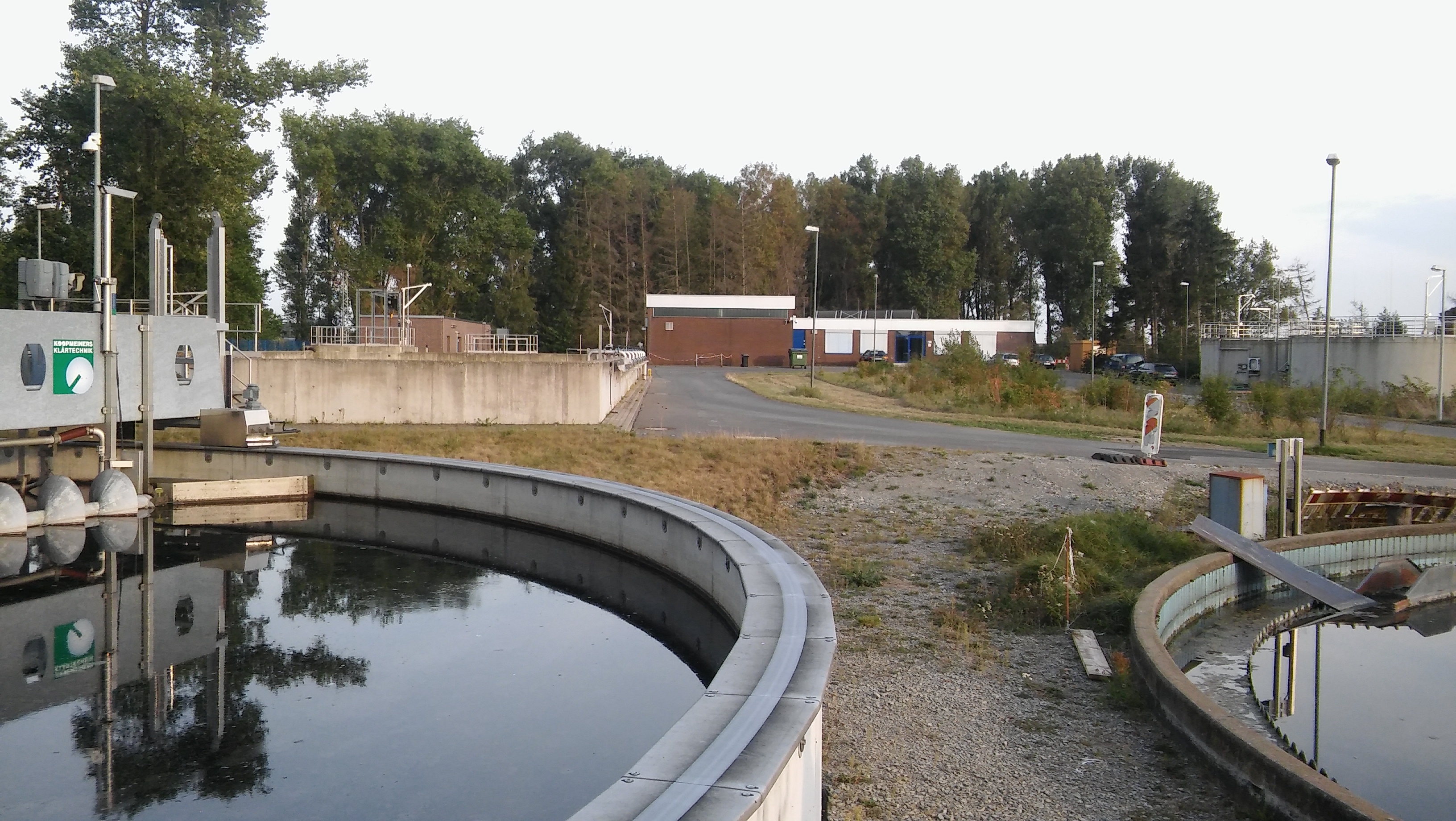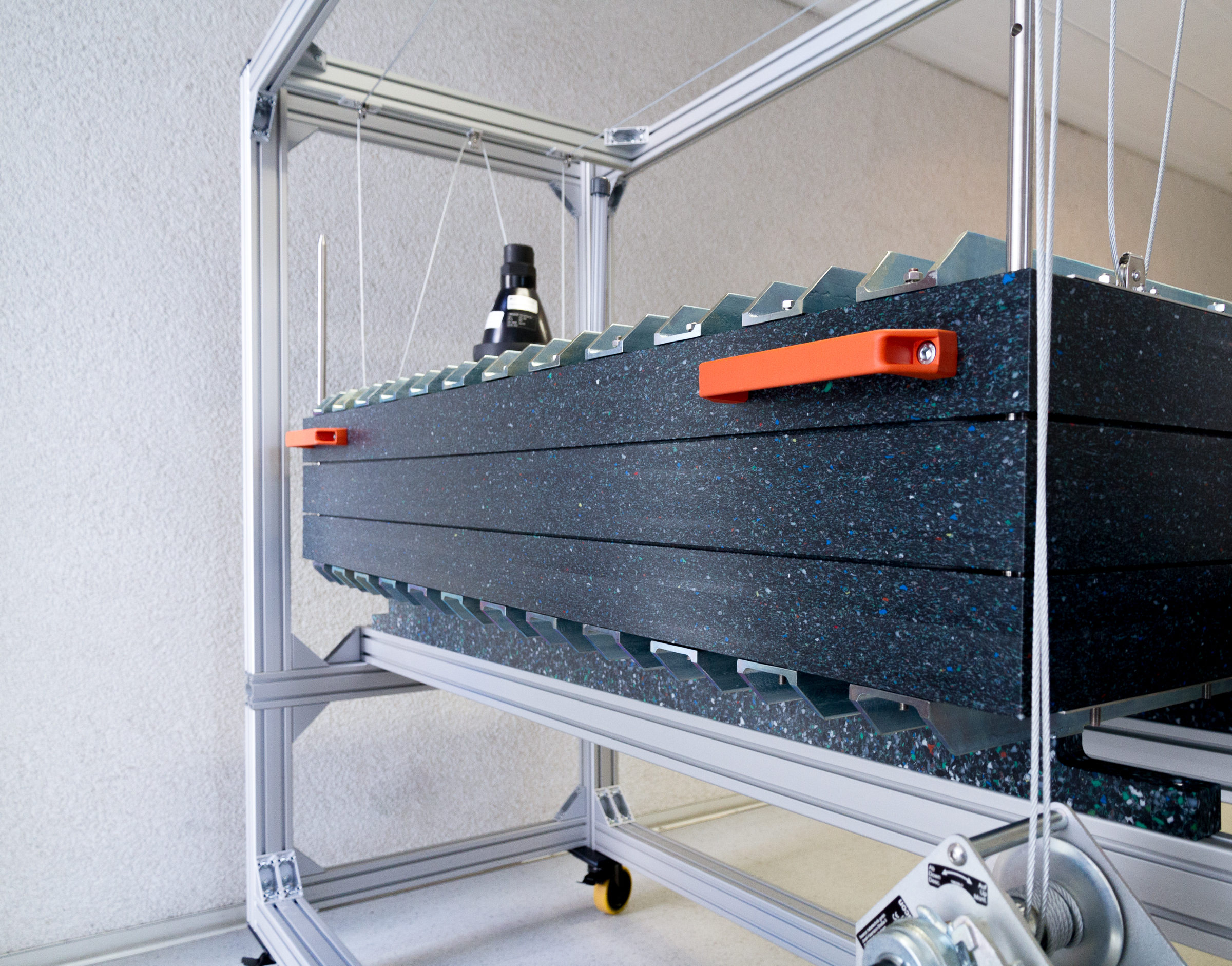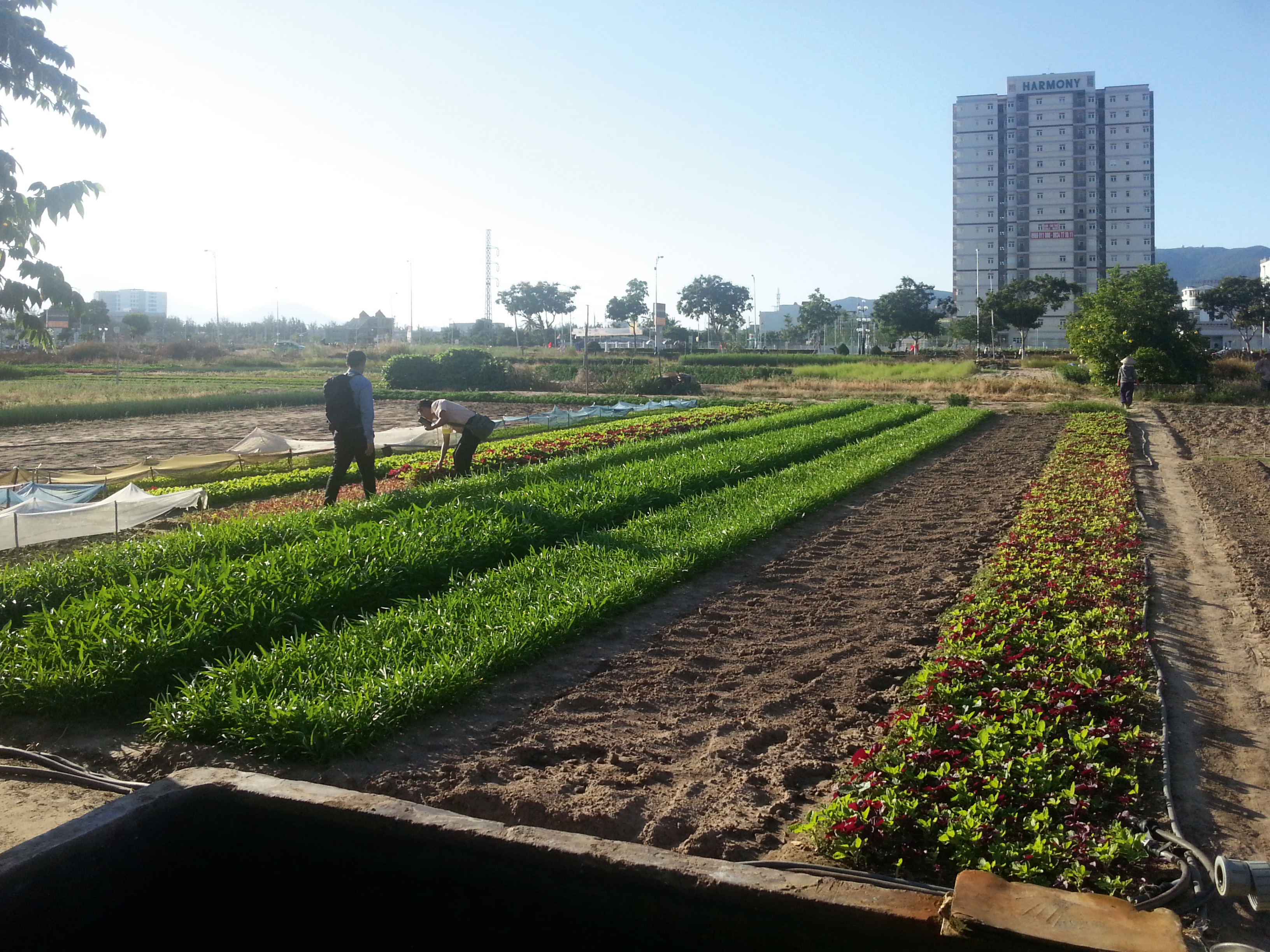In particular, we focus on developments in the area of smart infrastructure. This requires a holistic consideration of all the aspects of municipal infrastructure, covering the areas of water, energy, food and waste/residual flows. Fraunhofer IGB has many years of experience in integrated water management on the municipal and regional level, as well as in the use and development of new methods made available through the increasing digitalization of the water sector. This work focuses on the development of integrated strategies and implementation concepts to help cities, towns and neighborhoods cope with heavy rainfall, drought and other extreme weather events caused by climate change, taking into account a circular economy in the sense of the bioeconomy.
Resilient infrastructure for smart cities
The city as a living lab for bioeconomy

A city produces enormous amounts of wastewater, waste and exhaust air in a restricted space, which are currently mainly "disposed of". But the emissions contain organic residues, nutrients or CO2 – residues that can be used as raw materials for new products according to the bioeconomy approach using biological processes, procedures and principles.
Where and how much biowaste, other waste and residual materials, wastewater, exhaust gases and CO2 actually arise in the industrial, commercial and municipal sectors of a city? And what concrete measures could be used to implement solutions for the sustainable design of cities and municipal industry with bioeconomic approaches?
These are the questions addressed by the "urban BioEconomyLab" project, which was launched at the end of 2021 and is funded by the Baden-Württemberg Ministry of the Environment as part of the state strategy for a sustainable bioeconomy. With the scenarios and measures developed in the project, Fraunhofer IGB aims to enable three selected pilot regions in Baden-Württemberg to establish a sustainable bioeconomic economic area. The CityLab methodology developed as part of the Fraunhofer Morgenstadt initiative is being applied here. Its core element is a comprehensive analysis of all urban sectors, from which recommendations for decision-makers are derived.
Water management – New infrastructures for sustainable and energy-efficient water management

The water infrastructure systems of today's industrialized countries were created more than 100 years ago, i.e. they are based on the technological approaches of the time and are inefficient and expensive by today's standards. Conventional water infrastructure systems in the majority of industrialized countries are designed for the single use of water. With the exception of internal water recycling in industrial production facilities and initial approaches to regenerative water supply, there are no plans for reuse.
The technological challenges surrounding the topic of water are manifold. If existing resources are to be better used or new ones developed, innovative paths must be taken: Decentralized and adaptable infrastructure systems that collect and distribute water play just as decisive a role as possibilities for multiple use. Rainwater should be treated and developed as a new water resource. A needs-based purification of wastewater can be achieved with modern, cost-effective filter technology and adapted biological processes. In the ideal case, the ingredients of the wastewater are almost completely recycled in the purification process, both energetically and materially.
Fraunhofer IGB has already developed a wide range of technical innovations for sustainable water management. These are integrated into a holistic infrastructure concept that also takes into account energy supply and waste management. We adapt individual developments to the respective requirements of the region and combine different building blocks into an individual solution concept.
Wastewater as a resource
Nutrient recovery from wastewater
For the recovery of inorganic nutrients from municipal, industrial and agricultural wastewater, the IGB has developed an electrochemical process in which nitrogen and phosphorus are precipitated with a magnesium electrode as magnesium ammonium phosphate (struvite), a high-quality fertilizer.
The wastewater treatment plant as a biorefinery
The approach of using all the ingredients of wastewater goes one step further. In addition to recovering nutrients, suitable technologies can also be used to produce carbon-based products.

 Fraunhofer Institute for Interfacial Engineering and Biotechnology IGB
Fraunhofer Institute for Interfacial Engineering and Biotechnology IGB